Ditapis dengan

Planter and peasant:colonial policy and the agrarian struggle in east Sumatra…
- Edisi
- -
- ISBN/ISSN
- 9789004287150
- Deskripsi Fisik
- xii, 199p.: ill.
- Judul Seri
- -
- No. Panggil
- 330.95986 PEL p
- Edisi
- -
- ISBN/ISSN
- 9789004287150
- Deskripsi Fisik
- xii, 199p.: ill.
- Judul Seri
- -
- No. Panggil
- 330.95986 PEL p
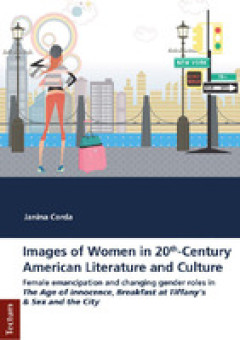
Images of Women in 20th-Century American Literature and Culture :Female emanc…
What do The Age of Innocence, Breakfast at Tiffany’s, and Sex and the City have in common? Strong women ahead of their time! Being part of New York’s middle and upper class, Ellen Olenska, Holly Golightly and Carrie Bradshaw & Co. cherish their otherness and strive for personal freedom and gender equality, thereby trying to combine traditional longings and modern beliefs. However, though si…
- Edisi
- -
- ISBN/ISSN
- 9783828836808
- Deskripsi Fisik
- 119 p.
- Judul Seri
- -
- No. Panggil
- 810.9005 COR i
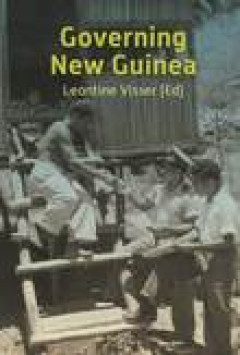
Governing New Guinea; an oral history of Papuan administrators, 1950-1990
This is the first time that indigenous Papuan administrators share with an international public their experiences governing their country. These administrators were the brokers of development. After graduating from the School for Indigenous Administrators (OSIBA) they served in the Dutch administration until 1962. The period 1962-1969 stands out as turbulent and dangerous, and for many curtaile…
- Edisi
- -
- ISBN/ISSN
- 9789067183932
- Deskripsi Fisik
- x, 358 p.; 22 cm.
- Judul Seri
- -
- No. Panggil
- 995.304 GOV g

The Latin New Testament :a guide to its early history, texts, and manuscripts
This book provides a comprehensive introduction to the history and development of the Latin New Testament and a user’s guide to the resources available for research and further study. The first five chapters offer a new historical synthesis, bringing together evidence from Christian authors and biblical manuscripts from earliest times to the late Middle Ages. Each witness is considered in its…
- Edisi
- -
- ISBN/ISSN
- 9780198744733
- Deskripsi Fisik
- XVII, 366 p.
- Judul Seri
- -
- No. Panggil
- 225.5209 HOU l
Past, present and future of historical information science
This book evaluates the results of two decades of research in ‘history and computing’. In spite of the fact that a lot has been accomplished, the report indicates critical places for improvement. Many historians and other humanities scholars seem satisfied with standard office tools, which do not always suit their complex sources and research questions. While more and more archival sources …
- Edisi
- -
- ISBN/ISSN
- 9069844133
- Deskripsi Fisik
- 129p.: ill.
- Judul Seri
- -
- No. Panggil
- 020.9 BOO p
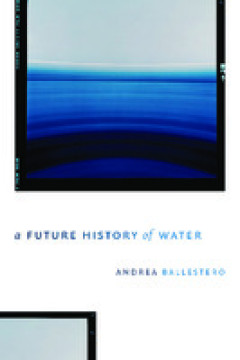
future history of water
Based on fieldwork among state officials, NGOs, politicians, and activists in Costa Rica and Brazil, A Future History of Water traces the unspectacular work necessary to make water access a human right and a human right something different from a commodity. Andrea Ballestero shows how these ephemeral distinctions are made through four technolegal devices—formula, index, list and pact. She arg…
- Edisi
- -
- ISBN/ISSN
- 9781478004516
- Deskripsi Fisik
- xvii, 232p.: ill.
- Judul Seri
- -
- No. Panggil
- 333.339 BAL f

Sergei M. Eisenstein:notes for a general history of cinema
One of the iconic figures of the twentieth-century cinema, Sergei Eisenstein is best known as the director of The Battleship Potemkin, Alexander Nevskii and Ivan the Terrible. His craft as director and film editor left a distinct mark on such key figures of the Western cinema as Nicolas Roeg, Francis Ford Coppola, Sam Peckinpah and Akiro Kurosawa.This comprehensive volume of Eisenstein’s writ…
- Edisi
- -
- ISBN/ISSN
- 9789089648440
- Deskripsi Fisik
- -
- Judul Seri
- -
- No. Panggil
- 791.430233092 SER s
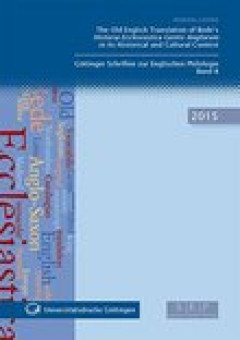
The Old English translation of Bede's Historia Ecclesiastica Gentis Anglorum …
Did King Alfred the Great commission the Old English translation of Bede’s Historia Ecclesiastica Gentis Anglorum, probably the masterpiece of medieval Anglo-Latin Literature, as part of his famous program of translation to educate the Anglo-Saxons? Was the Old English Historia, by any chance, a political and religious manifesto for the emerging ‘Kingdom of the Anglo-Saxons’? Do we deal w…
- Edisi
- -
- ISBN/ISSN
- 978386395189
- Deskripsi Fisik
- 411 p.
- Judul Seri
- -
- No. Panggil
- 274.2 LEM o
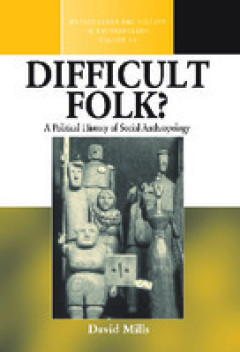
Difficult folk?:a political history of social anthropology
How should we tell the histories of academic disciplines? All too often, the political and institutional dimensions of knowledge production are lost beneath the intellectual debates. This book redresses the balance. Written in a narrative style and drawing on archival sources and oral histories, it depicts the complex pattern of personal and administrative relationships that shape scholarly wor…
- Edisi
- -
- ISBN/ISSN
- 9781785336638
- Deskripsi Fisik
- x, 222p.
- Judul Seri
- -
- No. Panggil
- 306.20941 MIL d

History of international relations:a non-European perspective
Existing textbooks on international relations treat history in a cursory fashion and perpetuate a Euro-centric perspective. This textbook pioneers a new approach by historicizing the material traditionally taught in International Relations courses, and by explicitly focusing on non-European cases, debates and issues.The volume is divided into three parts. The first part focuses on the internati…
- Edisi
- -
- ISBN/ISSN
- 9781783740222
- Deskripsi Fisik
- 218 p.; 22 cm.
- Judul Seri
- -
- No. Panggil
- 327.09 RIN h

Breaking intergenerational cycles of repetition :a global dialogue on histori…
The authors in this volume explore the interconnected issues of intergenerational trauma and traumatic memory in societies with a history of collective violence across the globe. Each chapter's discussion offers a critical reflection on historical trauma and its repercussions, and how memory can be used as a basis for dialogue and transformation. The perspectives include, among others: the heal…
- Edisi
- -
- ISBN/ISSN
- 9783847402404
- Deskripsi Fisik
- xi, 359 p.; 22 cm.
- Judul Seri
- -
- No. Panggil
- 303.6 BRE b

History of yugoslavia
Why did Yugoslavia fall apart? Was its violent demise inevitable? Did its population simply fall victim to the lure of nationalism? How did this multinational state survive for so long, and where do we situate the short life of Yugoslavia in the long history of Europe in the twentieth century? The Complete History of Yugoslavia by Marie-Janine Calic provides a concise, accessible, comprehensive…
- Edisi
- -
- ISBN/ISSN
- 9781557538499.
- Deskripsi Fisik
- xxiii, 418p.: ill.
- Judul Seri
- -
- No. Panggil
- 949.702 CAL

History of yugoslavia
Why did Yugoslavia fall apart? Was its violent demise inevitable? Did its population simply fall victim to the lure of nationalism? How did this multinational state survive for so long, and where do we situate the short life of Yugoslavia in the long history of Europe in the twentieth century? The Complete History of Yugoslavia by Marie-Janine Calic provides a concise, accessible, comprehensive…
- Edisi
- -
- ISBN/ISSN
- 9781557538499.
- Deskripsi Fisik
- xxiii, 418p.: ill.
- Judul Seri
- -
- No. Panggil
- 949.702 CAL

Emotions in history:lost and found
Ute Frevert.
- Edisi
- -
- ISBN/ISSN
- 9786155053344(pbk.)
- Deskripsi Fisik
- 255 p. : ill. ; 20 cm.
- Judul Seri
- -
- No. Panggil
- 152.4 FRE e
How Things Make History:The Roman Empire and its terra sigillata Pottery
Bright red terra sigillata pots dating to the first three centuries CE can be found throughout the Western Roman provinces. The pots' widespread distribution and recognisability make them key evidence in the effort to reconstruct the Roman Empire's economy and society. Drawing on recent ideas in material culture, this book asks a radically new question: what was it about the pots themselves tha…
- Edisi
- -
- ISBN/ISSN
- 9789048529933
- Deskripsi Fisik
- x, 173p.: ill.
- Judul Seri
- -
- No. Panggil
- 938 OYE h

Vocational education and training:The Northern territory’s history of publi…
This book represents the first consolidated history of vocational education and training in the Northern Territory. Not only does the story present a chronological account of events, people and institutions, it also offers an explanation of how the system actually works and this has application well beyond the Territory. The mix of historical accounting and operational analysis comes from a uni…
- Edisi
- -
- ISBN/ISSN
- 9781760460990
- Deskripsi Fisik
- XIII, 264 p.
- Judul Seri
- -
- No. Panggil
- 374.0130994 ZOE v

Macassan history and heritage:journeys, encounters and influences
This book presents inter-disciplinary perspectives on the maritime journeys of the Macassan trepangers who sailed in fleets of wooden sailing vessels known as praus from the port city of Makassar in southern Sulawesi to the northern Australian coastline. These voyages date back to at least the 1700s and there is new evidence to suggest that the Macassan praus were visiting northern Australia ev…
- Edisi
- -
- ISBN/ISSN
- 9781922144973
- Deskripsi Fisik
- vi, 238p. : ill.
- Judul Seri
- -
- No. Panggil
- 303.482 CLA m

From dust to digital:ten years of the endangered archives programme
- Edisi
- -
- ISBN/ISSN
- 9781783740659
- Deskripsi Fisik
- Ixviii + 654 p.; 23 cm.
- Judul Seri
- -
- No. Panggil
- 025.84 MAJ f
- Edisi
- -
- ISBN/ISSN
- 9781783740659
- Deskripsi Fisik
- Ixviii + 654 p.; 23 cm.
- Judul Seri
- -
- No. Panggil
- 025.84 MAJ f
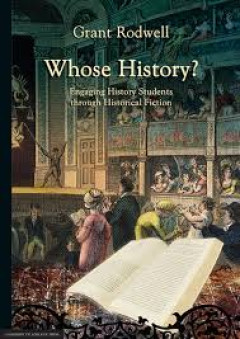
Whose history?:engaging history students through historical fiction
Whose History? aims to illustrate how historical novels and their related genres may be used as an engaging teacher/learning strategy for student teachers in pre-service teacher education courses. It does not argue all teaching of History curriculum in pre-service units should be based on the use of historical novels as a stimulus, nor does it argue for a particular percentage of the use of his…
- Edisi
- -
- ISBN/ISSN
- 9781922064509
- Deskripsi Fisik
- -
- Judul Seri
- -
- No. Panggil
- 994.00728094 WHO w

A History of anthropology. second Edition
This is a thoroughly updated and revised edition of a popular classic of modern anthropology. Avoiding geographical bias, the authors provide summaries of ‘Enlightenment’, ‘Romantic’ and ‘Victorian’ anthropology, from the cultural theories of Morgan and Taylor to the often neglected contributions of German scholars. The ambiguous relationship between anthropology and national cultur…
- Edisi
- -
- ISBN/ISSN
- 9780745333533
- Deskripsi Fisik
- 264 p.; 22 cm.
- Judul Seri
- -
- No. Panggil
- 306.4 ERI h
 Karya Umum
Karya Umum  Filsafat
Filsafat  Agama
Agama  Ilmu-ilmu Sosial
Ilmu-ilmu Sosial  Bahasa
Bahasa  Ilmu-ilmu Murni
Ilmu-ilmu Murni  Ilmu-ilmu Terapan
Ilmu-ilmu Terapan  Kesenian, Hiburan, dan Olahraga
Kesenian, Hiburan, dan Olahraga  Kesusastraan
Kesusastraan  Geografi dan Sejarah
Geografi dan Sejarah